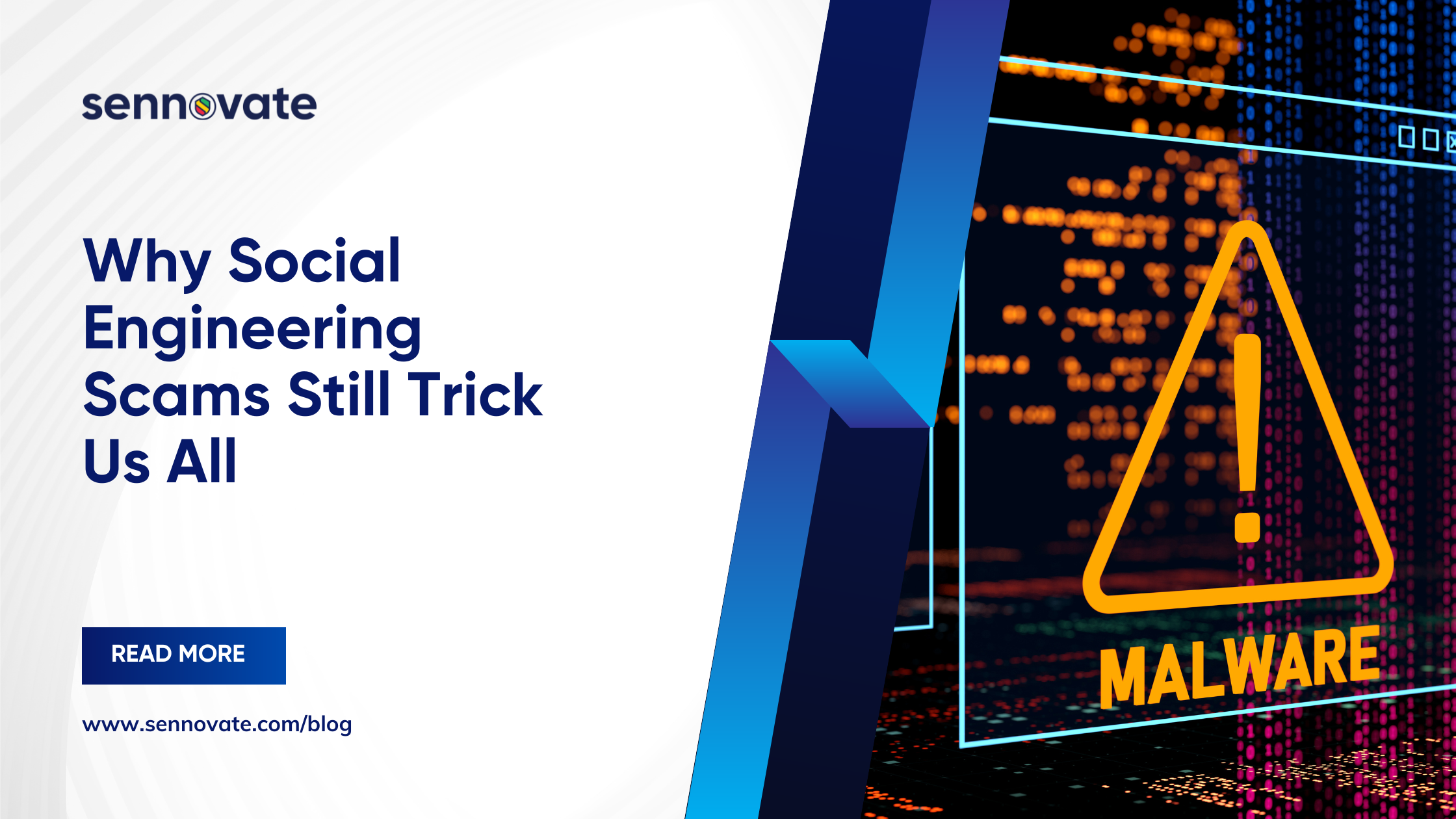

Why Social Engineering Scams Still Trick Us All
Firewalls? Check. Complex passwords? Double check. We fortify our digital lives with all the latest tech, feeling like knights in shining armor against cyber foes. Yet, one surprisingly simple weapon keeps leaving us vulnerable: social engineering.
These online cons exploit our very human nature – our trust, our helpfulness, even our fear. Imagine that email from your bank, all red flags and urgency, demanding you “verify your account or face immediate closure!” Or maybe it’s a text from an unknown number, promising a free phone upgrade for clicking a link. These are social engineering attacks, and they’re surprisingly effective.
Why Do We Fall for Social Engineering Scams?
Why do we, the supposedly tech-savvy folks of the 21st century, keep falling for these tricks? Let’s face it, we’ve all been there. Maybe you clicked a link out of sheer curiosity, or that email from “IT Support” just seemed a little too believable. Here’s the thing: it’s not your fault.
Cybercriminals are like sneaky magicians, pulling psychological rabbits out of hats. They play on our natural trust in authority figures. A well-crafted email with a familiar bank logo can bypass our skepticism, especially when the message shouts “URGENT!” They understand fear too, manipulating us into acting quickly before thinking critically. Remember that time you saw a friend “like” a suspicious link? That’s the bystander effect at play – we might assume someone else has already verified it, leading us to follow suit without checking.
How to Avoid Social Engineering Scams
But here’s the good news: the more we understand these tactics, the better we can fight back. First, take a deep breath and slow down. Don’t let fear or urgency dictate your actions. Hover over links to see the real destination before clicking. For phone calls, double-check the number and consider calling back through official channels.
Think of unsolicited offers like free security scans or amazing deals as red flags waving in a digital storm. Always verify with official sources before downloading or clicking, because if something seems too good to be true, it probably is.
Knowledge is our ultimate defense. Talk to your friends and family about social engineering tricks. Organizations can hold regular security awareness training to equip everyone with the tools to identify and avoid these threats. And hey, a little healthy skepticism goes a long way. Question the legitimacy of every request, even those seemingly coming from trusted sources.
Staying Secure from Social Engineering Attacks
Remember, cybercriminals are constantly evolving their tactics. By staying informed and implementing strong security practices, we can create a digital world where even the sneakiest social engineering tricks fizzle out before causing harm.
A Shared Responsibility: Combating Social Engineering
But the fight extends beyond individual vigilance. Social media platforms and email providers need to step up their game with stricter verification protocols and AI-powered filtering to catch suspicious content. Law enforcement also needs to prioritize investigating and prosecuting these crimes, sending a strong message that these online cons have real-world consequences.
Together, by fortifying our personal defenses and demanding a safer digital environment, we can make social engineering a relic of the past, not a constant threat in our ever-connected world.
Want to learn more about our how to protect yourself from Social Engineering attacks? Click here.
We provide worldwide businesses with IT Security Transformation and Infrastructure solutions and have now added SECaaS solutions. Backed by global partnerships and a library of 2000+ integrations, we’ve managed 10M+ identities, 10K+ threats and offered top-tier cybersecurity that saves time and money. Enjoy seamless integration across cloud applications and an all-inclusive pricing model covering product, implementation, and support. Questions? Consultations are free. Contact us at [email protected] or call +1 (925) 918-6618. Your cybersecurity upgrade starts here.



